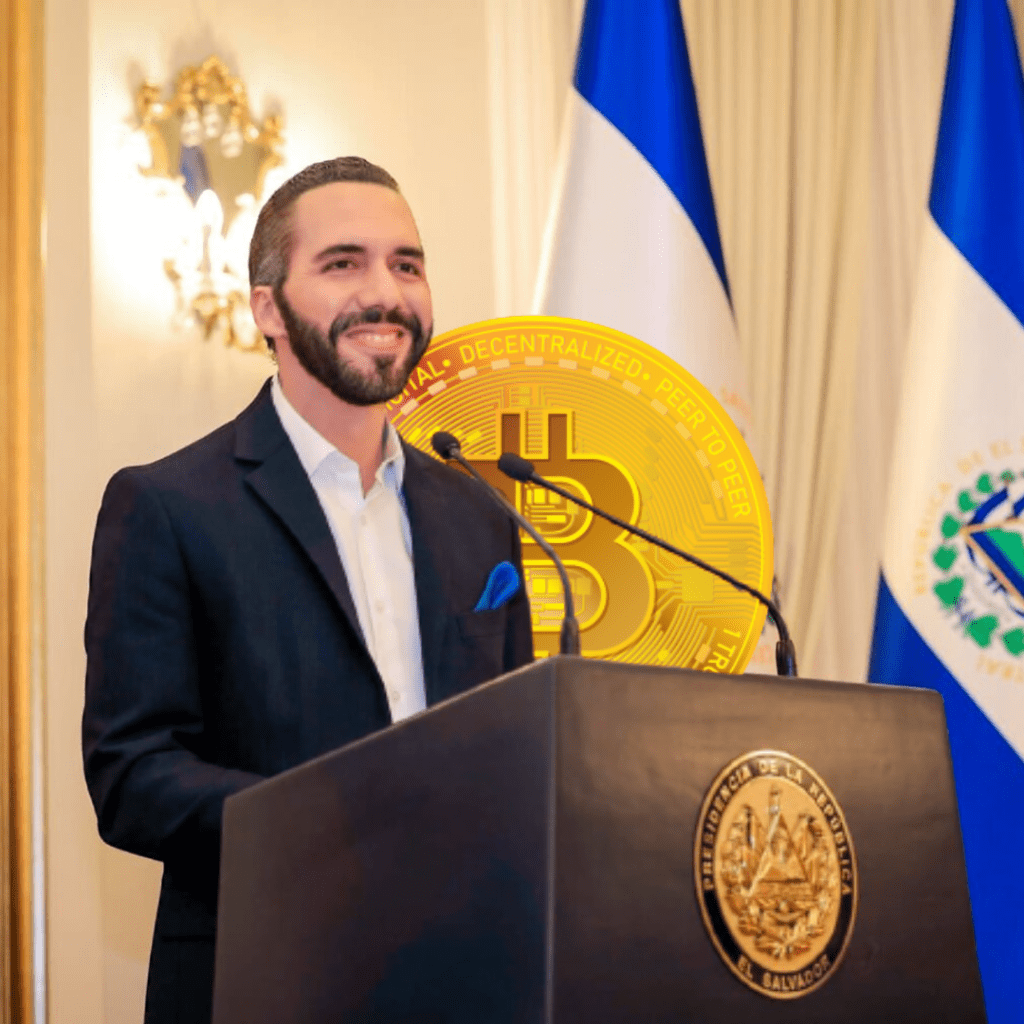In 2021, El Salvador made an audacious leap into the financial future, declaring Bitcoin as legal tender. As the first country worldwide to make such a move, the Central American nation attracted the globe’s attention. This historic decision represented not just a monetary policy shift, but also a significant sociopolitical gamble. The government, under President Nayib Bukele, aimed to boost financial inclusion, reduce remittance costs, and attract foreign investments. However, the experiment also brought forth apprehensions over the notorious volatility of cryptocurrencies and their potential misuse in illegal activities. Now, two years after this unprecedented decision, we delve into El Salvador’s Bitcoin journey, exploring the impacts, challenges, and opportunities that have emerged.
From Chivo Wallet to Daily Bitcoin Acquisitions: El Salvador’s Journey
A central player in El Salvador’s Bitcoin adoption was the Chivo Wallet – a government-backed digital wallet. Launched in conjunction with Bitcoin’s legal acceptance, the application allowed Salvadorans to send, receive, and store Bitcoins and dollars seamlessly, all without incurring transaction fees. To incentivize its adoption, the government even offered $30 in Bitcoin to each user registering with the app.
Alongside this, El Salvador didn’t just passively accept Bitcoin as a payment option; it became an active player in the cryptocurrency market. The government began acquiring Bitcoin, with President Bukele frequently updating the public on Twitter about the latest purchases. The state’s consistent acquisition of Bitcoin has not only displayed its commitment to the cryptocurrency but also given the nation a stake in Bitcoin’s performance, linking the country’s financial health to the volatile crypto market.
The Bitcoin Bonanza: Unpacking El Salvador’s Cryptocurrency Strategy
El Salvador’s strategy in adopting Bitcoin was multifaceted. At the core, the government aimed to improve financial inclusion. Over 70% of Salvadorans lacked access to traditional banking services. By integrating Bitcoin, the government hoped to bridge this gap, providing a financial infrastructure that’s accessible to all citizens.
The choice of Bitcoin also aimed at reducing remittance costs, a significant concern given that remittances account for about 20% of El Salvador’s GDP. Bitcoin transactions bypass the need for intermediaries, hence offering the potential for cheaper, quicker, and more accessible cross-border transfers.
Lastly, the adoption sought to boost the country’s attractiveness to foreign investors. As a hub for Bitcoin, El Salvador positioned itself as a pioneer in the digital economy, appealing to tech-savvy entrepreneurs and companies.
Yet, the Bitcoin strategy wasn’t devoid of risks. The volatility of Bitcoin posed potential financial stability threats. Moreover, the lack of control over the cryptocurrency’s value added an additional layer of complexity to the country’s economic management. Despite these challenges, El Salvador boldly pushed forward, stepping into a future where cryptocurrencies and economies intertwine.}
Citizens vs Bitcoin: El Salvador’s Public Sentiment towards the Crypto Giant
With the adoption of Bitcoin, public sentiment in El Salvador was mixed. While the younger, more tech-savvy citizens welcomed the move as a stride towards a technologically advanced future, older generations, particularly those not as familiar with digital technology, expressed concerns and hesitation. For them, the new digital currency represented an unfamiliar territory, often met with confusion and mistrust.
However, an undeniable aspect of this venture was the broadening of financial access. The Chivo Wallet helped integrate a significant portion of the unbanked population into the financial system. Today, many Salvadorans use Bitcoin for everyday transactions – buying groceries, paying bills, and even receiving their salaries. However, the public sentiment towards Bitcoin is continually evolving, closely tied to the cryptocurrency’s performance and the state’s management of the adoption.
The Cost of the the Experiment: Analyzing Government Expenditure on Bitcoin
Adopting Bitcoin as legal tender brought with it significant financial implications. Firstly, the government invested heavily in infrastructure, such as Bitcoin ATMs and the development of the Chivo Wallet, to facilitate the use of the cryptocurrency. Secondly, the state’s strategy of acquiring Bitcoin meant spending public funds in the highly volatile crypto market, which was accompanied by both potential gains and substantial risks.
The government also offered incentives, like the initial $30 Bitcoin to Chivo Wallet users and tax exemptions for Bitcoin businesses, to stimulate adoption and attract foreign investment. The total cost of these measures and Bitcoin acquisitions provides an understanding of the financial commitment El Salvador undertook in its Bitcoin experiment. However, the ultimate financial outcome of this venture remains to be seen and will largely depend on Bitcoin’s long-term performance and stability.
A Global Influence? El Salvador’s Bitcoin Adoption and its Impact on Other Nations
El Salvador’s Bitcoin adoption undoubtedly had ripple effects across the globe. The bold move was seen as an experiment that could set a precedent for other nations. Several countries, especially those struggling with financial instability and high remittance costs, watched El Salvador closely, considering the potential benefits and drawbacks of similar adoption.
However, many countries, particularly those with more developed economies, showed resistance towards such a move due to concerns about financial stability, consumer protection, and potential misuse of cryptocurrencies for illicit activities. International organizations like the IMF also expressed reservations about El Salvador’s cryptocurrency strategy. Nonetheless, El Salvador’s venture sparked a global dialogue about the role of cryptocurrencies in national economies, nudging governments and financial institutions to rethink their stance on digital currencies.
Harnessing Natural Power for Bitcoin: The Volcano Energy Project
In a revolutionary step toward sustainable cryptocurrency mining, the Salvadoran government embarked on the Volcano Energy Project. Utilizing the country’s abundant geothermal energy from volcanoes, the state sought to establish a greener and more efficient means of mining Bitcoin. The idea was to harness the naturally occurring geothermal power to generate electricity for Bitcoin mining farms.
The Volcano Energy Project is a testament to El Salvador’s commitment to making the Bitcoin experiment a sustainable one. The project promised to keep the costs of Bitcoin mining down, enabling the country to acquire more Bitcoin while reducing its carbon footprint. Moreover, it signaled a shift towards more sustainable practices in the world of cryptocurrency, setting an example for other countries and mining operations.
The Debt Payment Triumph: Bitcoin and El Salvador’s Financial Management
One of the more contentious outcomes of El Salvador’s Bitcoin venture has been the government’s claim of improved debt payment capability. Following Bitcoin’s legal tender status and the subsequent acquisition of the cryptocurrency, the government alleged that it used profits from Bitcoin to service national debt.
These claims have been met with skepticism and controversy, with critics questioning the transparency and sustainability of such a strategy. The volatility of Bitcoin, coupled with the complexity of managing national debt, led to ongoing debates about the efficacy of this approach. While Bitcoin could potentially provide additional revenue for debt servicing, the risk associated with the cryptocurrency’s price fluctuations cannot be overlooked.
Despite the controversy, the possibility of using Bitcoin gains for debt repayment exemplifies the innovative financial strategies El Salvador is exploring in its quest to stabilize and strengthen its economy. This, however, is not without its challenges, and it further underlines the speculative nature of this groundbreaking financial experiment.
The IMF’s Stance: A Critical Look at El Salvador’s Crypto Adventure
The International Monetary Fund (IMF) has been notably critical of El Salvador’s Bitcoin experiment. Concerned with potential risks related to financial stability, consumer protection, and legal issues, the IMF suggested that El Salvador reconsider its decision to accept Bitcoin as legal tender. They further cautioned about the potential for money laundering and financial instability due to Bitcoin’s volatility.
The IMF’s perspective, while critical, serves as an essential viewpoint in the global discourse surrounding El Salvador’s Bitcoin adoption. While the organization’s stance might seem to be on the conservative side, it also emphasizes the experimental nature of this venture and the need for careful oversight and management. In a broader sense, it’s a call for countries to approach the idea of integrating cryptocurrencies into their economies with caution and in-depth risk assessment.
Bitcoin in El Salvador – A Risky Bet or a Forward Leap?
Two years on from El Salvador’s landmark decision to adopt Bitcoin as legal tender, the verdict is still out. On the one hand, the nation has taken strides toward financial innovation, attempting to address long-standing economic issues and bringing a potential solution to the forefront. On the other hand, it has stirred controversy and skepticism, leading to discussions about the implications of cryptocurrencies on a nation’s economy, citizens, and global standing.
From the Chivo Wallet to the Volcano Energy Project, from debt management strategies to dealing with international bodies like the IMF, El Salvador’s Bitcoin adventure has been nothing short of historic. It’s been a journey of both significant potential and substantial risks, reflecting the dichotomy of innovation itself – the promise of a better future and the uncertainty that comes with uncharted territory.
El Salvador’s Bitcoin experiment is not just about a country embracing a cryptocurrency; it’s about a nation daring to envision a different financial future. Whether this bold move is a risky bet or a forward leap remains to be seen. But one thing is clear: El Salvador has placed itself firmly at the forefront of the cryptocurrency conversation, and the world is watching closely.









